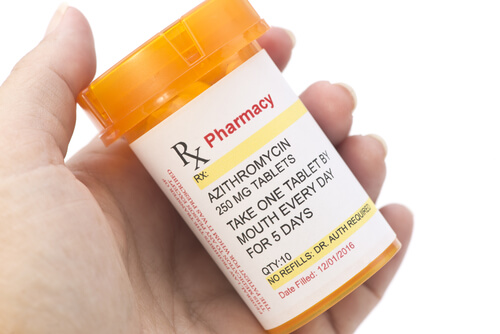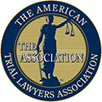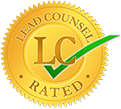
Azithromycin

The Driscoll Firm, LLC, is interested in hearing from patients or family members of patients who have experienced an irregular heart rhythm or other abnormal heart activity, including a heart attack, after taking the antibiotic azithromycin (Zithromax or Zmax).
The U.S. Food and Drug Administration (FDA) issued a Drug Safety Warning in March 2013 because studies by medical researchers and by Zithromax / Zmax manufacturer Pfizer indicated a risk of fatal heart rhythms among azithromycin users. Certain patients are at particular risk for developing this condition.
If you have lost a loved one who suffered heart problems after taking azithromycin or you have developed abnormal heart rhythms yourself after taking Zithromax or Zmax, contact The Driscoll Firm, LLC, today. A defective medical product lawyer from our firm can help you consider your legal options. Please call our toll-free number or complete our online form to set up a free consultation.
What is the Risk from Azithromycin?
Azithromycin is used to treat a variety of bacterial infections, including:
- Complications of chronic obstructive pulmonary disease (COPD) such as bronchitis and pneumonia
- Pharyngitis (sore throat)
- Tonsillitis
- Sinusitis (sinus infections)
- Ear infections
- Uncomplicated skin and skin structure infections
- Urethritis and cervicitis
- Genital ulcer disease (usually caused by a sexually transmitted disease such as genital herpes, syphilis or chlamydia).
In 2011, approximately 40.3 million individuals in the U.S. received an outpatient prescription for azithromycin, according to the FDA. Zithromax is familiar to many people as the “Z-Pak,” with a five-day treatment regimen rather than the 10-day treatment regimen most antibiotics require.
However, azithromycin can cause abnormal changes in the electrical activity of the heart that may lead to a potentially fatal irregular heart rhythm, the FDA says.
A New England Journal of Medicine (NEJM) study reported “a small absolute increase in cardiovascular deaths” in persons treated with a five-day course of azithromycin (Zithromax, Zmax) compared to patients treated with other antibiotics or none at all.
Patients at particular risk include those with:
- Existing QT interval prolongation, or a longer-than-normal time between two specific measurable points in your heart beat
- Low blood levels of potassium or magnesium
- A slower than normal heart rate
- Use of certain drugs used to treat abnormal heart rhythms, or arrhythmias.
The FDA has added information regarding azithromycin and prolonged QT intervals to the Zithromax drug label.
What Should a Zithromax / Zmax User Do?
Patients suffering azithromycin side effects may experience an irregular heartbeat, shortness of breath, dizziness or fainting while taking azithromycin (Zithromax / Zmax). However, the FDA says patients should not stop taking azithromycin without talking to their doctor first.
It is always appropriate to be informed about medications and to discuss any questions or concerns about azithromycin or other antibacterial drugs with the health care professional who is treating you. You should do so immediately.
It’s also crucial to contact a lawyer with experience in representing victims of dangerous drugs. An attorney can help you seek compensation that will assist with your medical expenses and cover your loss of enjoyment of life and the pain and suffering you have experienced. This money is sought through a legal claim known as a “product liability lawsuit.”
The Driscoll Firm, LLC, has successfully pursued defective pharmaceutical (drugs) claims for injured patients across the U.S. Our work has helped many individuals and families as they faced difficult and expensive illnesses or the loss of a loved one. We can investigate your Zithromax / Zmax case and explore every possible legal option available to you.
We’ll provide you with a free initial consultation and, if we can help you, we will do so on a contingency fee basis. This means there will be no fee until you are awarded compensation.
Call us toll-free today or complete our online form.
For more information:
- FDA Drug Safety Communication: Azithromycin (Zithromax or Zmax) and the risk of potentially fatal heart rhythms, U.S. Food and Drug Administration
- Azithromycin and the Risk of Cardiovascular Death, The New England Journal of Medicine
- Popular Antibiotic May Raise Risk of Sudden Death, The New York Times







